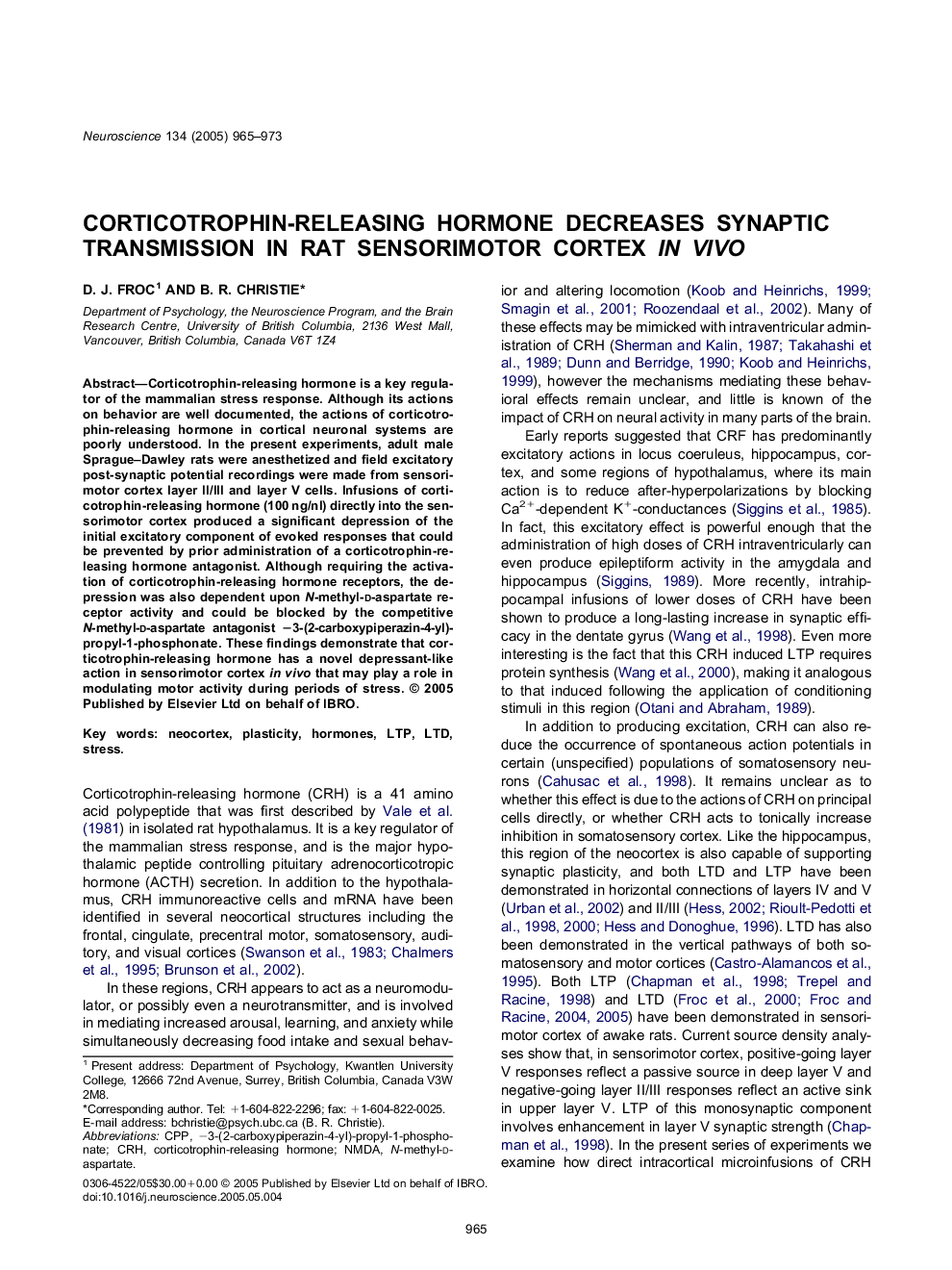| Article ID | Journal | Published Year | Pages | File Type |
|---|---|---|---|---|
| 9426595 | Neuroscience | 2005 | 9 Pages |
Abstract
Corticotrophin-releasing hormone is a key regulator of the mammalian stress response. Although its actions on behavior are well documented, the actions of corticotrophin-releasing hormone in cortical neuronal systems are poorly understood. In the present experiments, adult male Sprague-Dawley rats were anesthetized and field excitatory post-synaptic potential recordings were made from sensorimotor cortex layer II/III and layer V cells. Infusions of corticotrophin-releasing hormone (100 ng/nl) directly into the sensorimotor cortex produced a significant depression of the initial excitatory component of evoked responses that could be prevented by prior administration of a corticotrophin-releasing hormone antagonist. Although requiring the activation of corticotrophin-releasing hormone receptors, the depression was also dependent upon N-methyl-d-aspartate receptor activity and could be blocked by the competitive N-methyl-d-aspartate antagonist â3-(2-carboxypiperazin-4-yl)-propyl-1-phosphonate. These findings demonstrate that corticotrophin-releasing hormone has a novel depressant-like action in sensorimotor cortex in vivo that may play a role in modulating motor activity during periods of stress.
Keywords
Related Topics
Life Sciences
Neuroscience
Neuroscience (General)
Authors
D.J. Froc, B.R. Christie,
